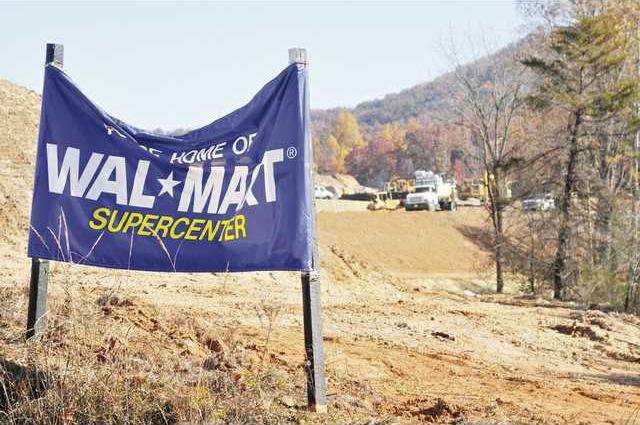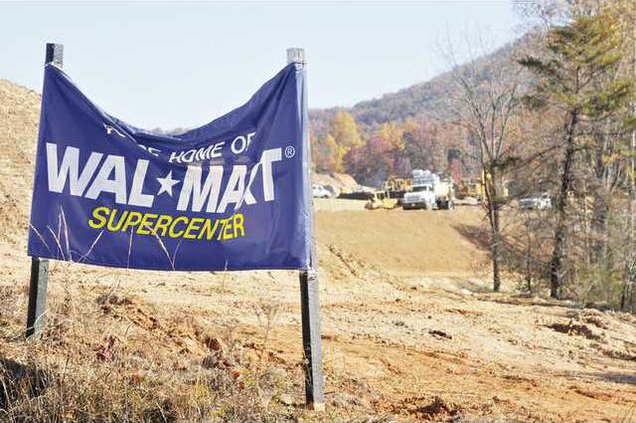1111bigboxaud
Ron Simmons of UGA’s Small Business Development Center talks about competing with "big-box" retail.Workshop
What: Seminar on competing with "big-box" retail
When: 8:30-10 a.m. Thursday (registration at 8 a.m.)
Where: Black Bear Conference Center, 32 Dawn Way off Ga. 75 near Helen
Admission: Free
Contact: White County Chamber of Commerce, 706-865-5356
The conventional wisdom is that when Wal-Mart or any other "big-box" retailer moves into town, local businesses shrivel up and die. But that’s not always the case.
On Thursday morning, the White County Chamber of Commerce and other business groups will sponsor a free workshop on how to cope with big-box retail.
The meeting is scheduled from 8:30 to 10 a.m. at the Black Bear Conference Center off Ga. 75 near Helen. Registration begins at 8 a.m.
White County currently has no large national chain stores. But that will change in the spring, when a Wal-Mart opens on the south side of Cleveland.
"We want to be proactive and not reactive," said Judy Walker, president of the White County Chamber of Commerce. "I think the business community realizes we’re in for a big change."
The workshop, she said, will give business owners some strategies on how they can adapt.
"We know they can’t compete against Wal-Mart on prices," she said. "But they need to find their niche, to look at what sets them apart."
The meeting, which is co-sponsored by Cleveland Better Home Town and the Alpine Helen/White County Convention and Visitors Bureau, will feature representatives from several agencies, including the Georgia Department of Community Affairs, Appalachian Community Enterprises and the U.S. Department of Agriculture.
But the key advice will come from the University of Georgia’s Small Business Development Center in Gainesville.
Ron Simmons, area director at the center, said the worst thing businesses can do is to try to carry on exactly as they did before. To survive, they must be innovative and flexible.
"Look at where your sales peaks are," he said. "Maybe you need to be open 10-8 instead of 8-6. Maybe you need a Web site. Maybe you should offer delivery. One thing small businesses can do to compete is to offer excellent customer service. Specialize. Become at expert at what you do."
Simmons acknowledged that some businesses will go under, especially if they’re already struggling. "But most businesses are going to do OK."
He said it may seem hard to believe, but sometimes a big store can increase customer flow at locally owned businesses.
"Those stores may actually do better, because Wal-Mart is keeping people in town to shop," he said. "They’re staying nearby, not driving to another county."
White County residents currently travel to Gainesville, Dahlonega or Cornelia to visit a Wal-Mart, and while they’re in those towns, they often stop at other stores as well, depriving White County of sales tax revenue.
Simmons said the Cleveland Wal-Mart could have a ripple effect. "A big retailer is like a big planet, drawing little planets to it," he said.
Union County’s first Wal-Mart is under construction in Blairsville and is set to open at about the same time as the one in Cleveland. Cindy Williams, president of the Union County Chamber of Commerce, is encouraging chamber members to look at the bright side of the situation.
"We have a lot of unique businesses," she said. "When Wal-Mart opens, it will increase traffic and bring more people to those other stores."
In fact, she’s advising members to forge relationships with the big retailers. "Get to know the Wal-Mart manager, so he can make referrals," Williams said. "If the customer is looking for a brand of bicycle that Wal-Mart doesn’t carry, he can refer them to your bike shop."
She does expect that there will be some negative impact, especially on supermarkets. While other types of stores can survive by offering specialty merchandise such as locally made products, all grocery stores have to offer pretty much the same food.
Wal-Mart has been referred to as a "category killer" in the grocery industry, much as the Home Depot chain has an alleged reputation for killing off locally owned hardware stores.
But Gary Powers, president of the Dahlonega/Lumpkin County Chamber of Commerce, said that’s not what he’s observed.
"Around 1999-2000, I was working for the chamber in Lake Havasu City, Ariz., and the local hardware stores were up in arms because Home Depot was coming to town," he said. "But we brought in a consultant who helps communities prepare themselves (for big-box retailers). And nearly all of the hardware stores stayed in business."
Greg Brown, board chairman of the Rabun County Chamber of Commerce, has observed a similar phenomenon.
"When Home Depot came in, some people wondered if it would hurt local building-supply places," he said. "But nobody closed their doors. And I haven’t heard anything negative about the Wal-Mart."
Brown said people drive up from Atlanta to see Rabun County’s mountains, not to shop at chain stores.
"Tourism is big in this area, and Wal-Mart and Home Depot don’t cater to that," he said. "Our art shops and antique shops were not affected. We need our small businesses and we want more of them. Both small business and big-box retail serve their purpose."
Powers said Wal-Mart will never be able to compete with locally owned businesses in at least one aspect: personal relationships. Local owners remember each customer’s preferences and ask how their family is doing.
So when Wal-Mart comes in, Powers said, "It isn’t the end of the world. You may see an initial drop in sales, but those loyal customers will come back."
But businesses that have not made the effort to earn customers’ loyalty may find themselves deserted when a big-box store comes to town.
"If you’re not competitive, you will eventually be weeded out," said Williams. "That’s the way America works."

